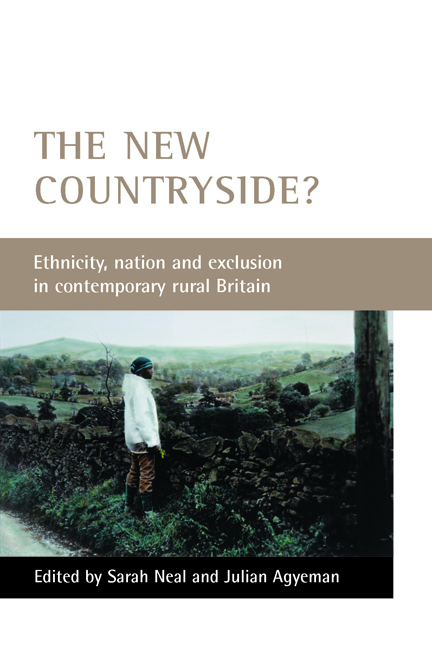two - Place matters: exploring the distinctiveness of racism in rural Wales
Published online by Cambridge University Press: 18 January 2022
Summary
Racism: place matters
Researchers have, for some time, argued that there is no single racism in the UK, and that different racisms manifest themselves in different ways in different places at different times. In line with the research paradigms of the day, early work tried to demonstrate this statistically, by mining large data-sets. Schaefer (1975) and Robinson (1987) both used national data-sets to identify regional variations in the scale and form of expressed racism. Both found that the populations of different regions and cities had propensities to express racist sentiments that were significantly different. Robinson (1987, p 193) therefore concluded that the study of localities and places should be an ‘active element within any explanatory framework’ and that neglecting their importance would only serve to ‘weaken our ability to understand real world situations’.
Later work then tried to explain such variations in racism by reference to the characteristics of specific places. Husbands (1983), for example, identified the East End of London as a place where anti-immigrant sentiment had been prevalent for many years. He accounted for this by reference to a local culture that had been forged by continuing immigration and the casual nature of employment in the docks.
More recently still, research and writing has tended to follow two divergent paths, neither of which has been centrally concerned with place and its significance. Those working within rural studies initially concentrated upon proving that racism does exist in rural areas, and is just as virulent there. Jay (1992) was the first to do this, with his study funded by the Commission for Racial Equality. But, while this was situated within the South-West of England, there was little effort to consider the distinctiveness of that place and how this might have shaped the racism on display there. The South-West was simply taken as an archetype of the ‘rural’. Further work within rural studies has since concentrated on the generic processes that ‘other’ various minorities (such as Travellers or gays) within rural settings because they do not fit into a generic – rather than place-specific – rural idyll.
- Type
- Chapter
- Information
- The New Countryside?Ethnicity, Nation and Exclusion in Contemporary Rural Britain, pp. 47 - 72Publisher: Bristol University PressPrint publication year: 2006



